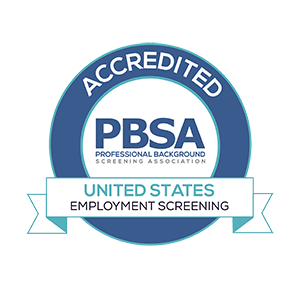To understand part of the concern over the use of credit reports in the background screening process, consider the job applicant. This is important whether new to the full-time workforce or considering a change after many years in a career. By the time a potential new employee has completed the application process, they may feel laid bare. An employer may ask for anything from social security to driver’s license number to a complete employment history, personal and professional references. Now, they’re being asked to agree to a background screening that includes a credit check. Even if they understand that such screenings are compliant with most states’ employment laws, it can feel intrusive and somewhat unnecessary.
Savvy employers, however, will not only see and understand applicants’ potential concerns, but they may also choose to show how a rigorous screening process benefits an organization’s entire structure. This includes all of the employees.
Why Request a Credit Report?
Employers, generally speaking, are not looking at candidates’ credit reports because they’re interested in shopping habits or credit scores. Rather, a credit report requested for the purpose of an employment background screening paints a broader picture of behavior as it relates to financial matters.
Employees may consider a history of bankruptcies, liens or foreclosures, a habit of late payments, or percent of credit utilization as signs of a lack of fiscal responsibility, for example. It’s important to note that most employers who request credit reports do so not to try to “type” candidates but more often, to be alerted to patterns and particularly, any relatively recent changes that may be cause for concern.
When an applicant voices concerns about agreeing to a credit report, employers should explain their policies as well as the legal basis for such a request. Candidates are typically understanding when they realize that including credit reports. So long as they conducted in strict compliance with the Fair Credit Reporting Act (FCRA) and guided by the US Equal Employment Opportunity Commission (EEOC). And, it’s important to be clear with candidates and current employees* about why requesting that information is important.
The Benefits of Thorough Background Screening Goes Both Ways
It is important to remember that all of the information obtained in legally permissible background screenings can be considered in the hiring process. It is equally important to educate both applicants and current employees/internal candidates that such tools are not designed to eliminate candidates; rather, they are intended to help an employer make the best selection among all of the qualified candidates.
Thorough screening results in the strongest, most effective workforce – and after all, that’s the point of the hiring process. For questions about available credit reports and other tools that can improve your hiring process, please contact us.
*Many hiring managers fail to take advantage of their ability to request background checks before promoting or transferring existing employees. If you have questions about when your organization can utilities different background screening tools, contact us.











Leave a Reply
Want to join the discussion?Feel free to contribute!